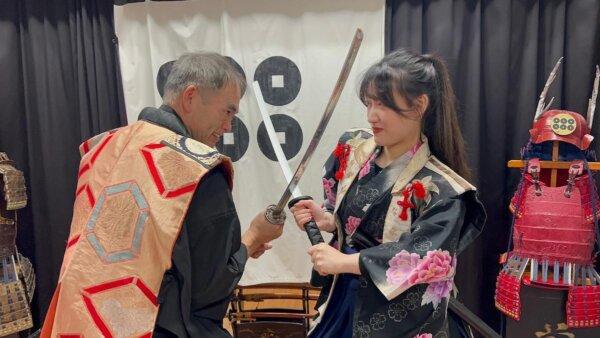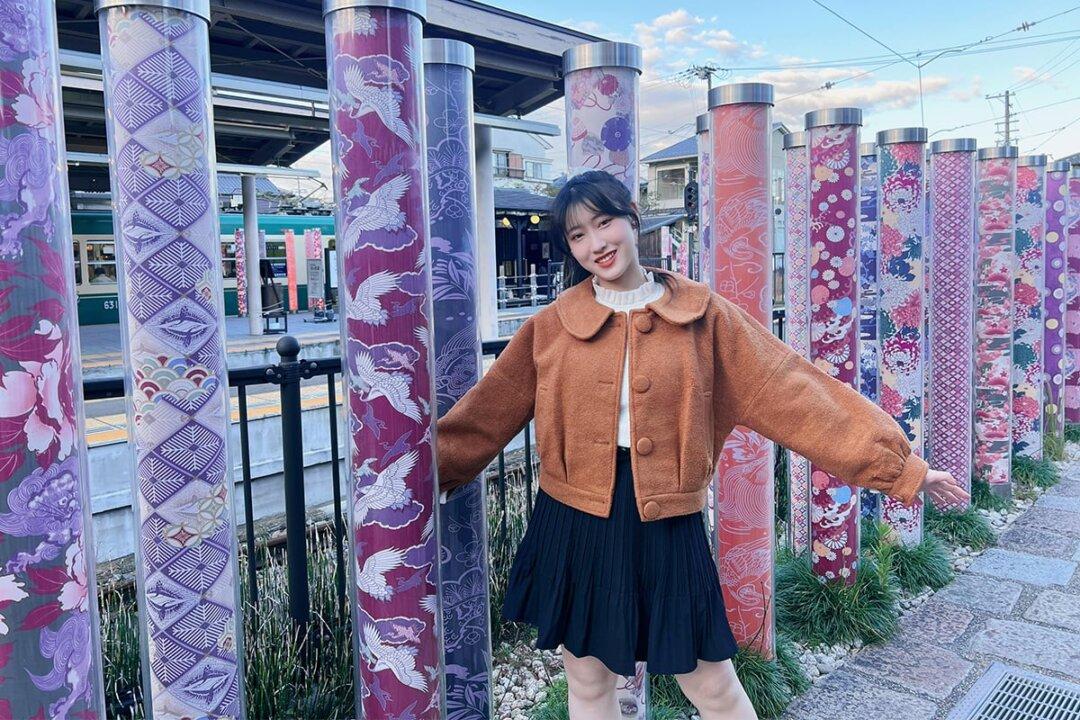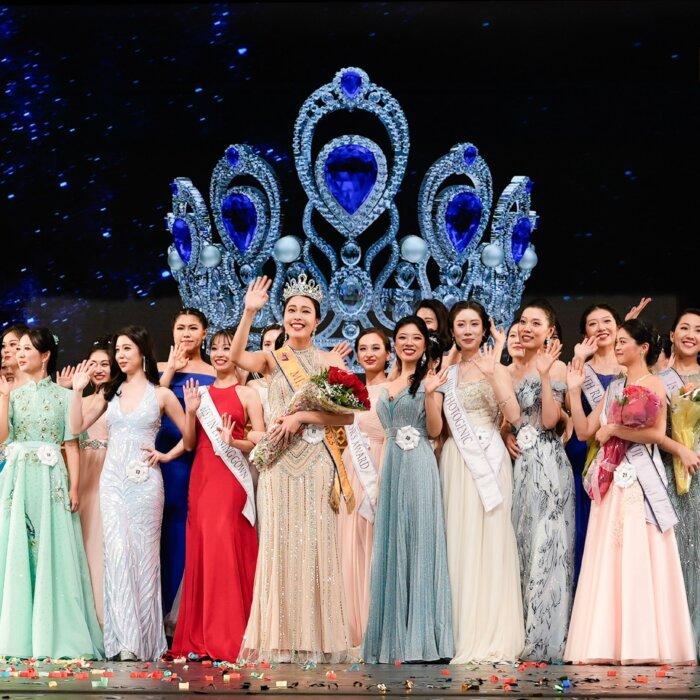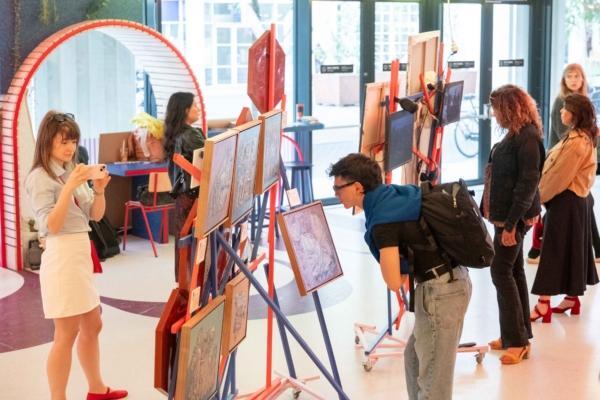Majoring in international studies, Yona Yeung enjoys being exposed to various cultures and aspires to be a TV anchor, using her skills to express a free and true voice.
In September, she flew from Japan to Seattle to begin her exchange program.
Self-Studying Japanese
Since the second grade of elementary school, Ms. Yeung has enjoyed watching subtitled Japanese anime and movies, and through that, she learned the language by osmosis.In her fourth year of secondary school, she visited Japan for the first time with a school exchange group and gained a very good impression of the country.
In the same year, she started to prepare for the Japanese Language Proficiency Test (JLPT) and finished learning the gojūon in three days. By studying on her own, she attained the Japanese language proficiency of N2.
Longing to study and live in Japan since childhood, Ms. Yeung spent a year in high school convincing her family to allow her to study at a Japanese university.
After graduating from high school in 2021, she embarked on a journey to Japan and enrolled in a university in Kyoto, which retains a traditional Japanese atmosphere.
“In the past, I learned about Japan from movies, anime, and manga, but experiencing it for myself is so much more different,” she told The Epoch Times.
In Japan, what touched Ms. Yeung the most was the humility and politeness of the Japanese, how they pay attention to the details of life, such as dress and speech, their use of honorifics, and frequent bowing.
“Through talking to Japanese people, I learned that from the very first lesson in elementary school, they would teach the children not to cause trouble for other people. I believe it makes them pay attention to this [regard] in their way of doing things and in their lives,” she said.
Being fluent in Japanese, Ms. Yeung quickly integrated into the local community. Many Japanese mistook her as a local if she did not explain.
While studying and living in Kyoto, Ms. Yeung was keen on exploring the country’s traditional culture.
Compared to her time in Hong Kong, she found Japan’s traditional activities much richer, such as the Gion Festival held every July in Kyoto, which is a grand national cultural event dedicated to releasing the souls of those who died of plague.
“The Gion Festival is a bit like the Cheung Chau Bun Festival in Hong Kong, with parades and rituals, but it’s longer than the Bun Festival, lasting a month. Its origin is also related to plague,” Ms. Yeung said.

Attracted by Traditional Values
Ms. Yeung learned about the First NTD Global Chinese Beauty Pageant through the internet. The pageant’s mission, based on traditional virtues of “Morality, Righteousness, Propriety, Benevolence, and Faithfulness,” subverted her understanding of beauty pageants.“This New Tang Dynasty pageant is very different from ordinary beauty contests,” Ms. Yeung said.
“I know about some beauty contests in Japan, one of which is to live broadcast your own life. The longer you broadcast, the more popular you are, the more [likely] you can enter the final, mainly focusing on external beauty,” she said.
“But Miss NTD emphasizes inner beauty, focusing on personal achievements, cultural heritage, and understanding of traditional culture, which is very different.”
Submitting her application to try it out, Ms. Yeung didn’t expect that she would become one of the 32 finalists and offered the opportunity to be trained in New York and participate in the final competition.
“I traveled alone to New York for the 7-day training and finals. As the only Hong Kong contestant, I was nervous and excited,” she said.
“Each of the seven days was challenging, and the busy schedule was tough but really rewarding. Not only did I learn the skills and knowledge related to pageantry, but I also got to know myself again,” she wrote in a post on social media after the competition.
“Although I was not able to win this pageant, I am not disappointed. This experience is unprecedented. I have learned too much. I will continue to hone myself and realize my dream.”
With the 31 other contestants, Ms. Yeung felt at home, immersed in the warmth of helping each other.
“Although the other beauties came from different places, countries, and cultural backgrounds, we were like sisters, caring for and encouraging each other,” she said.
“We helped each other when preparing to go on stage, changing clothes, and doing make-up. Everyone worked together to make the whole stage performance go smoothly. I saw the confidence of other beauties around me. They were proactive in helping others. Their speech and deportment had a great impact on me.”
She also has her own understanding of “benevolence” and “faithfulness” in traditional culture. Facing the declining morality in modern society, Ms. Yeung believes that people should insist on kindness and use their hearts to break down barriers and build mutual trust.
“Nowadays, right and wrong have been reversed in society. Especially after the ‘anti-Extradition Bill’ movement in Hong Kong, I have become clearer about good and evil, and I hope I can develop my career in a free country in the future,” she said.
Now having moved to Seattle to continue her studies, Ms. Yeung gained a much different experience in the United States, a friendlier, less restrictive Western society.
“In Japan, you have to put on make-up every day and look pretty before you leave the house, which is part of Japanese etiquette,” she said.
“Life in the U.S. is much more casual. I also like that people are very friendly with each other. Passers-by who don’t know each other can stop to say hello, which is very different from the culture in both Hong Kong and Japan.
“I am also interested in learning more about and experiencing American culture and sharing what I see and hear with my friends through my personal channel.”






